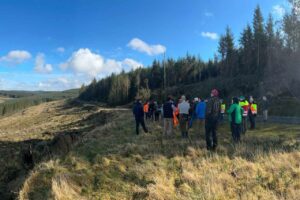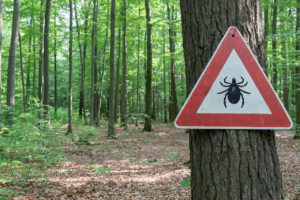
Martin Glynn FICFor, the Institute’s representative on the Forestry and Climate Change Working Group (FCCWG), highlights that while much is being done since the Action Plan for Climate Change Adaptation of forests, woods and trees was published in England a year ago, a lot more needs to be undertaken.
Few of us can have failed to grasp the implication of headlines in recent months that address the threat of climate change, or crisis as it is now becoming, and urgent action is needed. From authoritative scientific reports to the actions of teenage environmental activist Greta Thunberg sailing across the Atlantic in a zero emissions yacht, it is clear that in the forestry sector we cannot sit back and do nothing.
Quite rightly, much of the debate is around what we can do to limit the severity of climate change. Forestry has a key role to play in this mitigation, with extensive, appropriate, afforestation surely an obvious thing to do both in the country as a whole and in the urban forest in our towns and cities.
But as a sector we must also be doing much more to adapt to the predicted climate of future decades. The Forestry Climate Change Working Group, on which I represent the Institute of Chartered Foresters (ICF), was created to drive forward a closer relationship with government in terms of policy, forestry strategy, regulation, science and innovation.
Now, 12 months on, our progress report shows that while much has been done, there has been limited progress, or indeed opportunity, when it comes to working closely with Defra policy teams. Some input has been provided for the development of the Environmental Land Management System, but as individual organisations rather than as a group on behalf of the sector.
Progress continues to be made in species diversification by Forestry England through investment in new nursery facilities to support its resilience programme and the work of HTA and the Confor Nursery Producers Group to enhance the biosecurity and availability of resilient planting stock and members of the group have been working to increase the transfer of knowledge.
But there is little evidence of an up-turn in the implementation of adaptation measures. Efforts, to date, do not appear to have been effective in eliciting change, suggesting that much further work, resources and commitment are required to deliver the scale and rate of change required.
However, good progress has been made in terms of research priorities with innovative work from Forest Research on landscape scale benefits of woodland creation supporting the resilience and delivery of ecosystem services as well as the provision of guides, training and support tools. The Royal Forestry Society (RFS), the Institute of Chartered Foresters (ICF), Woodland Heritage (WH) and Sylva are communicating research findings and stimulating debate across the sector, while the Forestry Commission, the Woodland Trust and Natural England have published joint interpretation and practical guidance on genetic considerations of climate change adaptation.
In forestry we have been celebrating 100 years since the introduction of the 1919 Forestry Act and a lot has been written about progress and change. But it is also a reminder that woodland and management practices that have been developed over the last half century, or earlier, are not necessarily suitable for today’s climate, let alone the substantially altered future climate.
I am hopeful that the year ahead will provide opportunities for the FCCWG to go further in a meaningful way. We are ready to collectively provide considered input to the consultation on the English Tree Strategy and also, I hope, push further forward in terms of key policies and strategies so that the 25 Year Environment Plan can actually become a reality.
The FCCWG has representation from the following organisations:
- Country Landowners Association (CLA)
- Confor
- Defra
- Forestry Commission
- Forest Research
- Institute of Chartered Foresters (ICF)
- Lockhart-Garrett
- Natural England
- Royal Forestry Society
- Sylva Foundation
- Woodland Heritage
- Woodland Trust
You can download the report here.





